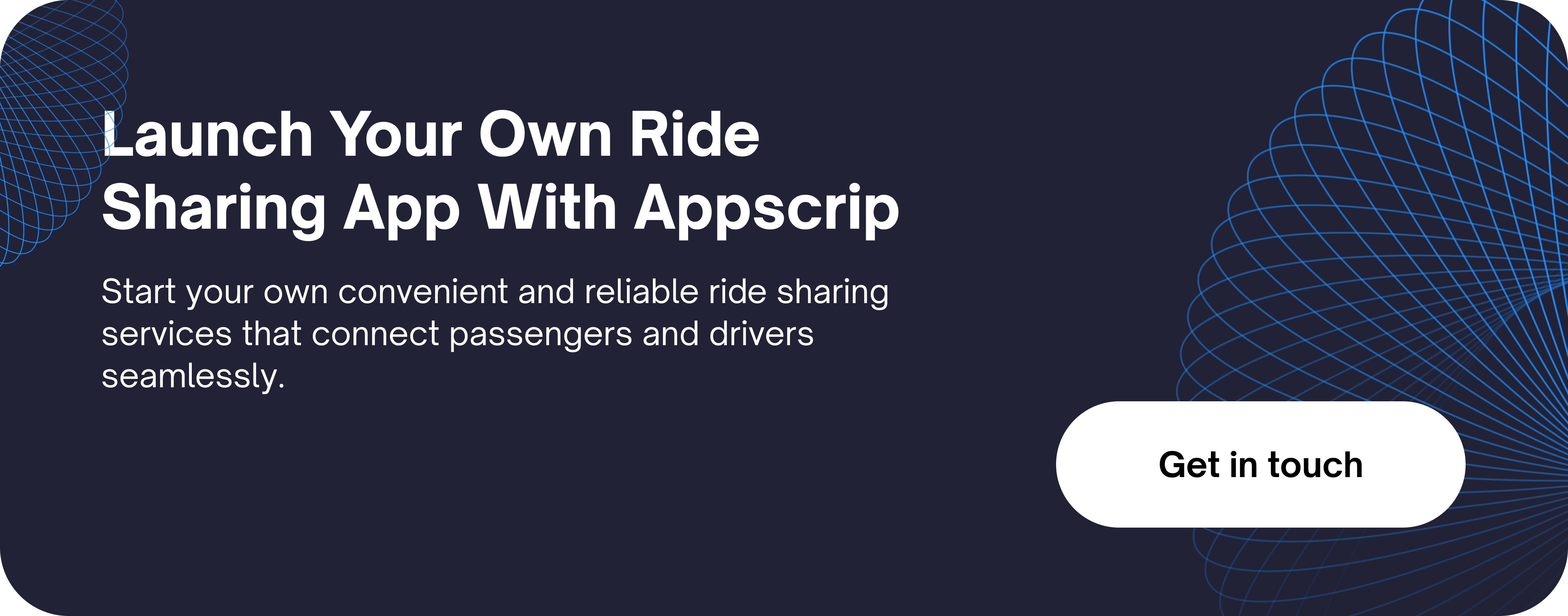The taxi app market was valued at $84.7 billion in 2021 and is expected to touch $182.4 billion by 2026, growing at a CAGR of 16.5%, making it an attractive option for entrepreneurs. Factors like urbanisation, rapid adoption of smartphones, high speed internet and the convenience and cost-effectiveness of hailing a cab easily using an app fuels this demand.
However, while the opportunity shines, your success hinges on a critical factor – choosing the right on-demand taxi software. This blog will unwrap all necessary aspects of the top on-demand taxi software (Karry & Jugnoo) for prospective entrepreneurs to make an informed choice.
Understanding On-Demand Taxi Software
We will explore the core components of these software and how they work to facilitate seamless ride bookings, real-time tracking, and payment processing.
Brief Overview of On-Demand Taxi Business Model
The on-demand taxi industry operates on several business models, including traditional taxi services, ride-sharing platforms, and niche-focused services. We will provide a brief overview of these models, to help you determine which aligns best with your entrepreneurial vision.
Key Features to Look for in an On-Demand Taxi Software
To make an informed decision, it’s crucial to know the features you should be looking for in an on-demand taxi software. We’ll provide an in-depth analysis of the essential functionalities that your chosen software should offer – as stated below:
- User-Friendly Interface
- Real-Time Tracking
- Routing, Geolocation
- Payment Integration
- Admin Dashboard
- Driver Management
- Customer Support
Introducing Jugnoo
Jugnoo software is a white-label on-demand taxi software that can be customised as per your brand requirements. Jugnoo rates 4.2 out of 5 stars on the Google Play Store.
Features
| Customer App | Driver App | Admin Panel |
| Ride booking | Ride requests | Manage bookings |
| Schedule booking | Share availability | Manage customers |
| Notifications | Ride information | Manage drivers |
| Driver tracking | Navigation | Real-time tracking |
| Messaging | Start-End Trip | Ride notifications |
| Payments | Earn summary | Surge pricing |
Technology Stack
The Jugnoo software is built on a few open-source technologies, such as:
- Node.js: can build scalable and reliable web applications.
- MongoDb: is a NoSQL database to store data.
- Express.js: A web application framework that is used to build APIs.
- React Native: A framework to build native mobile apps for iOS and Android.
Cost of the software
| Basic Version | Full-Fledged Version | |
| Cost of Software | $20K | $40K |
Time to market
| Basic Version | Full-Fledged Version | |
| Time to market | 3 months | 6 months |
Support after the launch
Jugnoo provides 24/7 support after the launch of the software. This includes support for technical issues, as well as marketing and customer support.
Overall, Jugnoo is a good reliable and affordable option for entrepreneurs who are looking for an on-demand taxi software.
Meet Karry: Your Ultimate On-Demand Taxi Solution
Karry is a reliable and innovative option for entrepreneurs looking for an on-demand taxi software. It is scalable and affordable with features that can help grow your business.
The Karry app has a rating of 4.3 out of 5 stars on the Google Play Store.
Features
| Customer App | Driver App | Dispatcher Dashboard | Admin Panel |
| Book a ride | Accept/Reject ride | Bird’s eye view of all rides | Promo codes |
| Customer preferences | Waiting charges | Manual booking | Set up special zones |
| Call masking | Live tracking | Assign rides | Add updates |
| Multiple pick-ups | Ride history | Ride tracking | Backend campaigns |
| Chat option | Invoice details | Fare setup | |
| Fare breakdown | Add/withdraw money | Driver management | |
| Rating, reviews | Ratings |
Advance Features & Complimentary Benefits
| Advance Features | Complimentary Benefits |
| Create special zones | Rebrand product easily |
| Operator fleet management | Brand colour integration |
| Reduce cost of APIs | Server set up |
| Driver out of connectivity options | App publishing |
| Business accounts | Payment gateways |
Technology Stack
| Functionality | Technology |
| Frontend | React Native, Flutter |
| Backend Development | Node.js, Python (Django or Flask), Ruby (Ruby on Rails) |
| Real-Time Data Processing | WebSocket for real-time communication between the app and server. |
| Mapping and Geolocation | Google Maps API, Mapbox, or other mapping services for location-based functionalities. |
| Location Tracking | GPS and Geolocation APIs to track the user’s and driver’s location. |
| Routing and Navigation | Algorithms like Dijkstra’s or A* for efficient route planning & navigation. |
| Payment Integration | Stripe, Braintree, or other payment gateways to handle secure and convenient payments. |
| Push Notifications | Firebase Cloud Messaging or Apple Push Notification Service (APNs) for real-time updates and notifications. |
| Database Management | PostgreSQL, MySQL, MongoDB, or other databases for storing user data, ride history, etc. |
Cost of the software
| Basic Version | Full-Fledged Version | |
| Cost of Software | $8K | $35K |
Time to market
| Basic Version | Full-Fledged Version | |
| Time to market | 4 months | 6 months |
Support system after the launch
Karry provides 24/7 support after the launch that includes support for technical issues, as well as marketing and customer support.
Comparative Analysis
Side-by-Side Feature Comparison
Revenue Models
| Karry | Jugnoo |
| Commission based | Commission based |
| Cancellation based | Surge pricing |
| Premium features | Premium subscription |
| Surge pricing |
User Experience
- User experience depends on the design and user interface.
- Karry has an edge when it comes to user experience with more user-friendly features and functionalities in comparison to Jugnoo.
- Usability testing proves Karry provides a far superior user experience and seamless user interface.
Customisation Options
- Jugnoo and Karry offer varying degrees of customization, to brand your app and tailor it to your specific needs.
- Both platforms provide flexibility in terms of app features, payment options, and user interfaces.
- But Karry has wider customisations options such as: rebranding the final product with brand colour integration, saving on API costs, getting server set up and app publishing done as well.
Scalability
- Scalability relates to the app’s backend, database, and the servers they are hosted on.
- Karry with its state-of-the-art container technology, clean coding practices, use of microservice architecture is one of the most robust taxi booking software in the market today.
Integration With Third Party Services
- Both platforms offer integration with essential services like payment gateways, mapping APIs, and messaging services.
- Both seamlessly integrate with third-party services such as analytics tools, CRM systems, and marketing platforms.
Security Measures
- Security is paramount in the on-demand taxi industry. Examine their security features, including data protection, authentication, and encryption.
- Karry is not only robust & scalable but extremely secure as well with SSL-powered API’s, Keychain, JWT, reverse proxy setup that ensures security goes from the app to each individual API.
Performance and Reliability
Uptime and Downtime
- Though there is no clear indication in values to the uptime and downtime, we think there isn’t much difference here.
- Rather what is important is their disaster recovery plans and server redundancy which seem to be at par.
Speed and Responsiveness
- When it comes to speed and responsiveness of their mobile apps and web platforms Karry is found to have an edge here.
- Performance issues can lead to a poor user experience and affect customer retention.
Pricing and Cost Analysis
Comparing the Pricing Structures
- Pricing models of Jugnoo and Karry vary when it comes to setup fees, monthly subscription costs, and transaction fees.
- Pay attention to any tiered pricing structures or volume-based discounts.
Total Cost of Ownership (TCO) Considerations
- To calculate the TCO over time, factor in all costs, including licensing, maintenance, and support fees.
- Consider how pricing may change as your business grows.
Hidden Costs to Be Aware Of
- Be aware of any hidden or additional costs, such as customization fees, data storage costs, or fees for accessing premium features.
Making the Decision
Factors to Consider Before Making a Choice
Budget Constraints
- Assess your budget and evaluate which platform aligns better with your financial resources.
Business Goals and Scalability
- Choose the platform that aligns with your long-term business goals and provides scalability options.
Customer Support and Maintenance
- Consider the quality of customer support and ongoing maintenance services offered by each platform.
- Prompt support can be crucial in resolving issues and ensuring smooth operations.
Why Karry Can Be Your Ideal Choice
- Karry is a reliable and affordable option with a proven track record of success and over 10,000 rides booked every day.
- It offers several features such as geo fencing, live tracking, and rating and review system.
- The Karry software is very user-friendly and is scalable.
- Geo fencing: This feature sets up a virtual boundary around your desired pickup location.
- Live tracking: To track your ride in real time.
- Rating and review system: This feedback can help you improve the quality of your service and attract more riders.
- Karry has a rating of 4.3 out of 5 stars on the Google Play Store.
- It offers 24/7 support ensuring that your business runs smoothly.
Conclusion: Choosing the Right On-Demand Taxi Software
Ultimately, your decision should align with your specific business needs, budget, and growth plans. Considering the features available in each software, the functionalities offered and technology stack, we conclude that Karry certainly has its nose ahead.
Customers and drivers have several options that would give them more information and easily operable, this makes Karry a better choice. The Advance Features and Complementary Benefits also adds reason to believe that Karry has the edge over Jugnoo.

After an Engineering degree and a Diploma in Management I devoted 16+ years working in the automotive industry. My innate skill and extreme passion in writing, encouraged me to adopt it up as a profession. I have been writing for more than 10+ years in the software industry. The 400+ blogs I published are informative, exhaustive and interesting to a professional and causal reader.






